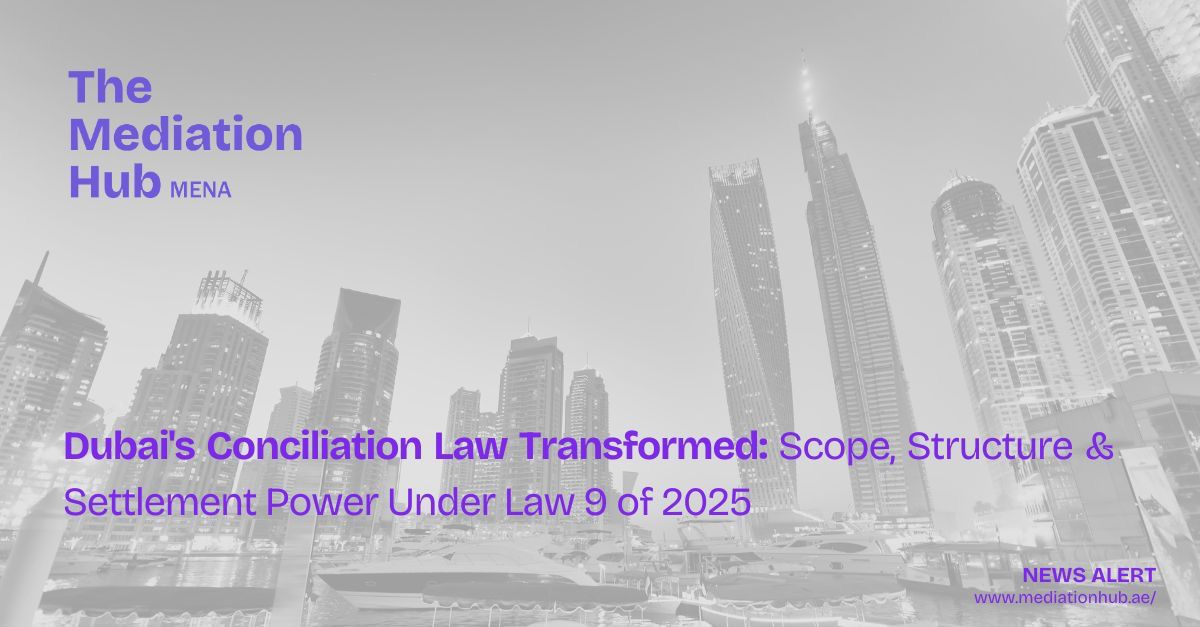Dubai's Conciliation Law Transformed: Scope, Structure & Settlement Power Under Law 9 of 2025

Key Amendments to the Dubai Conciliation Law: What You Need to Know
Dubai Law No. 9 of 2025 has introduced significant changes to thedispute resolution landscape in Dubai, amending the previous Conciliation Law (DubaiLaw No. 18 of 2021 regulating conciliation activities the Emirate of Dubai). Here are the highlights:
• Expanded Scope for Conciliation: Conciliation is now permitted inpersonal status disputes (with limited exceptions), with the FamilyReconciliation and Guidance Committee playing a central role.
• Streamlined Procedures: All disputes must now be processed through the Courts’ electronic portal and supervised by a competent judge, ensuring greater oversight and efficiency.
• Empowered Government Agencies: The Center for Amicable Settlementof Dispute can delegate conciliation to government agencies or authorizedentities, who can now handle disputes and certify settlement agreements.
• Enforceability of Settlements: Settlement agreements certified by authorized conciliators are now directly enforceable once endorsed, with clear procedures for challenging or refusing certification.
• Mandatory Conciliation: Courts are prohibited from registeringclaims subject to mandatory conciliation unless first presented to the appropriateconciliation body, ensuring disputes follow the correct process.
• Formalities and Language: Settlement agreements must bebilingual, with Arabic prevailing, and must meet new certification requirementsto be enforceable.
These amendments enhance legal certainty, speed up dispute resolution, and reinforce the enforceability of settlements in Dubai. Businesses and individuals should ensure compliance with the new procedures to avoid risks of unenforceable agreements or procedural delays.
.svg)
.svg)